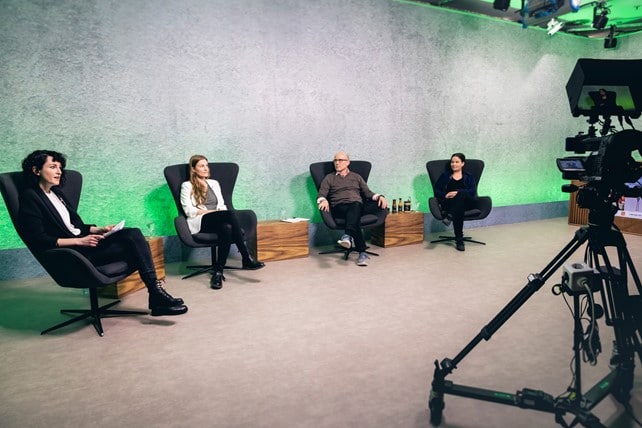According to the Food Waste Index Report 2021, the world wasted approximately 931 million tonnes of food in 2019 – with 61 per cent of this waste coming from households, 26 per cent from restaurants and 13 per cent from supermarkets. How can innovation help reduce resource waste? And how far is Berlin on the way to becoming a truly “zero waste” city?
On April 27th, Dr Ina Säumel, lead of the EdiCitNet project, and head of the junior research group Multifunctional Landscapes at the Integrative Research Institute on Transformations of Human-Environment Systems at Humboldt University Berlin, discussed this topic with others at an event entitled “On the Way to a Zero-Waste Capital City”.
Other participants in the discussion included Stephanie Otto, the CEO of BSR, Berlin’s waste management service, Alexander Piutti, the founder and CEO of SPRK.global, a start-up which aims to reduce food waste through technology and Jasmin Suchy, who has opened Germany’s first vegan zero-waste restaurant, “Frea” in the centre of Berlin.
The participants discussed different ways of approaching the challenge of achieving zero waste in the German capital. Dr Ina Säumel offered the scientific perspective and explained how urban farming and innovations within Berlin-based food systems – like those explored within the EdiCitNet project – can make a significant contribution to waste reduction and more sustainable cities.
This online discussion (in German) was part of a series of “Digital Talks” organised in cooperation with the Berliner Morgenpost newspaper and the business network Berlin Partner. Missed the livestream? You can watch a recording of the event right here.



